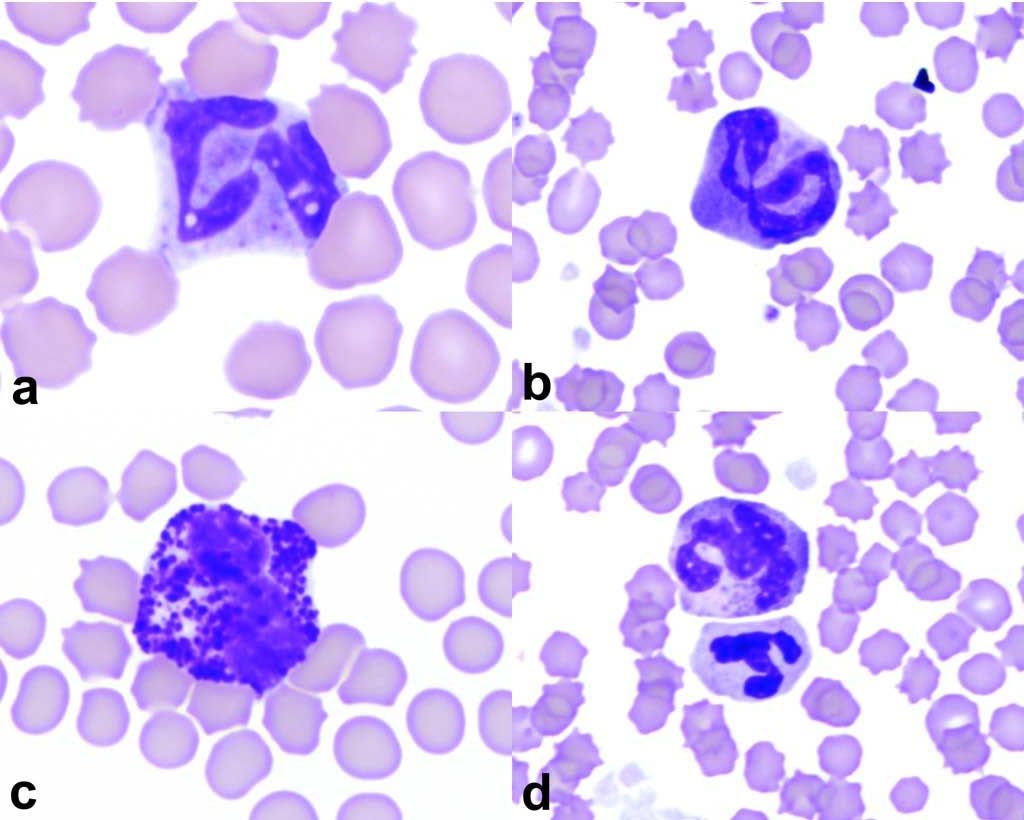Basophils
Basophils are derived from the common myeloid progenitor along with eosinophils and follow a similar developmental path as other granulocytes. Basophils become recognizable at the myelocyte stage due to the presence of secondary granules. GM-CSF, IL-4, IL-3, and SCF are involved in the differentiation of basophils. Basophils are uncommon in the peripheral blood of domestic species and granularity and staining properties are variable. Granules are water soluble and may be leached by staining and washing. Canine basophil granules are scant and dark blue-purple with Romanowsky stains; feline granules are numerous and pale orange-lavender; bovine granules are numerous and blue-black; equine granules are irregular in size and number and are dark blue-black (Fig. 2.9). Basophils, particularly in dogs and cats, can be differentiated from neutrophils by the general purplish staining of their cytoplasms, slightly larger size, and stretched nucleus (paler and less lobulated relative to the neutrophil nucleus). Basophil granules contain histamine, heparin, and major basic protein, amongst several other enzymes and proteins. Although derived from separate cell lines, basophils and mast cells have similar functions and respond to parasitic infections and hypersensitivities. Histamine release from basophils may be responsible for recruitment of eosinophils into sites of inflammation.

Basophilia
Persistent basophilia warrants investigation for underlying parasitism or hypersensitivities. Often eosinophil numbers are also increased in these situations. Other types of inflammatory reactions, basophilic leukemia, and basophilia secondary to neoplasms, particularly hemopoietic neoplasia, should also be considered.
Basopenia
Basopenia is difficult to document with a 100 cell count differential, particularly given the RI for most domestic species. Endogenous or exogenous corticosteroids reduce basophil numbers similar to their effect on eosinophil numbers.
definition
Decrease in the number of basophils in peripheral blood. May not be detectable given the reference intervals.

